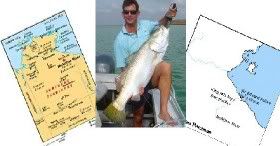This report this morning is quite disturbing. This concerns me greatly. I lived at McArthur River Station in 1977 while on a working holiday with my family. This began my love for the river. When I left I promised one day that I would return. 1977 was the year that saw the stealthy declaration of the Borroloola Town Plan by the CLP Government to protect the interest of Mount Isa Mines (MIM) and any future involvement of the river in mine-related activity against the interests of traditional owners – particularly because at that stage a slurry pipeline was being discussed to get the product to port. My husband and I had a close friendship with a Gurdanji traditional owner. At this time the Aboriginal Development Corporation (ADC) was negotiating the purchase of McArthur River Station, on which the Xstrada mine is situated, from Mount Isa Mines. Then one morning people found out that all this effort was for nought. The Northern Territory Government had intervened to protect the interests of MIM.
I kept my promise of 1977. My husband was dead. My children had grown and flown the coop. Sixteen years later, a job came up in Tennant Creek working for the local Member of Parliament in the seat of Barkly. The seat of Barkly covers McArthur River Station, the McArthur River, and Borroloola. I applied. I got the job. I came back. I lived in Tennant Creek from 1993 to 1997. This period covered the gearing up of McArthur River Mine by Mount Isa Mines (MIM) from its previous status as a pilot project. I was used to dealing with MIM because, in the interim, I had spent nearly a decade living and working in Mount Isa. When I consider the agreements made with local aboriginal people by Mount Isa Mines, I don’t believe that the mine has delivered for the interests of local aboriginal people.
For thirty years, I have been concerned with the impact of mining on the pristine McArthur. Now it has become an eventuality.
There is the distinct possibility of a fightback by Xstrada following the NT Govt’s decision against Xstrada’s EIS statement. If this fightback comes about, it will receive strong support from the mining community and will be run by a professional public relations company. Business interests will seek to dominate against the interests of aboriginal people and against the welfare of the local environment.
Human beings know better than this. No amount of dollars - whether it is in the pockets of Australians or the Swiss, in the pockets of corporations or government - can replace the dugong and the turtle (which I have eaten, prepared by an aboriginal clan, beside the McArthur River) if they and their habitat, along with with the barramundi for which Borroloola is famous, are destroyed.

